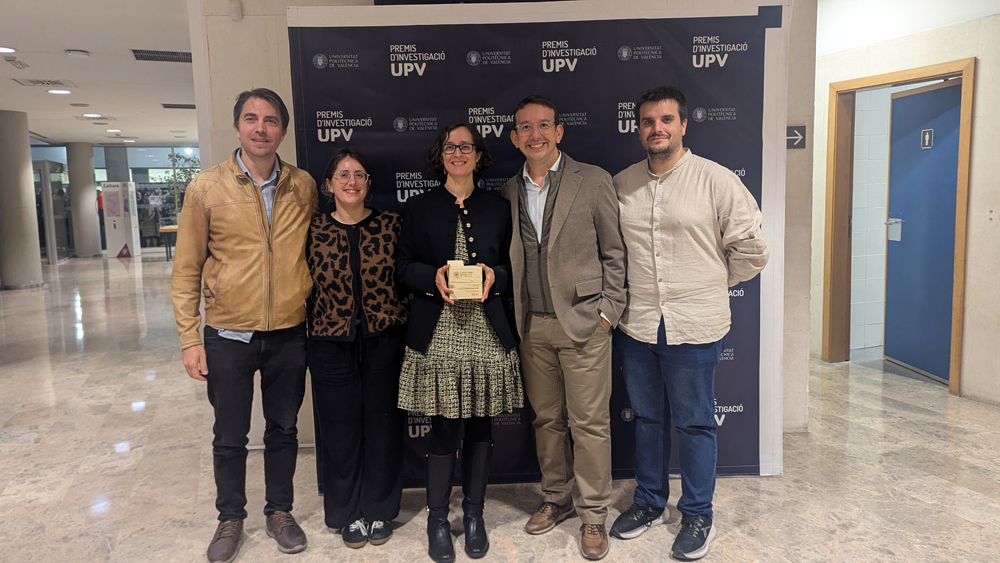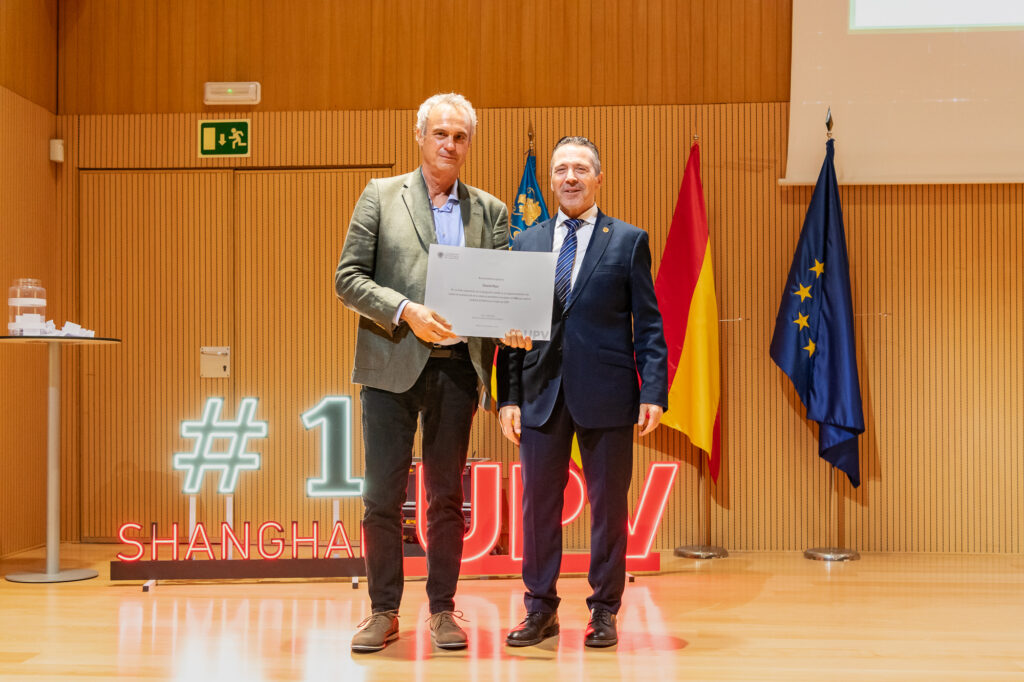María Guillem Sánchez, director of the ITACA Institute at the Universitat Politècnica de València (UPV) and head of the COR group, has been awarded the “Knowledge Transfer Award” in the category of “Medicine, Health Sciences, and Natural Sciences” during the fourth edition of the UPV Research Awards.
Alongside her, Eduardo Rojas, a researcher from the ICTs against Climate Change (ICT vs CC) group, received a special mention for his outstanding work in disseminating and communicating about the meteorological phenomenon DANA.
ACORYS: Global Heart Mapping and Precise Identification of Arrhythmia Origins
The award given to María Guillem recognises the impact of the medical device ACORYS, which analyses cardioelectric signals using non-invasive cardiac mapping. This technology allows for the diagnosis and treatment of cardiac arrhythmias by providing real-time visualisation of the heart’s electrical activity.
ACORYS has been developed by the COR group at the ITACA Institute, in collaboration with the spin-off Corify Care and the Gregorio Marañón Hospital. Its main advantage lies in its ability to produce a “global map” of the heart, enabling precise identification of arrhythmia origins and guiding more effective treatments, such as catheter ablation.
“Unlike traditional electrocardiograms (ECGs), the ACORYS system offers a comprehensive view of cardiac electrical activity, which represents a fundamental step forward in diagnostic and therapeutic precision,” says María Guillem.

This technology has received numerous awards, including the EIT Innovation Award in 2020 for its innovative approach combining non-invasive electrocardiography (ECGI), 3D reconstruction, and artificial intelligence. More recently, in 2024, the SAVE-COR project was recognised as the “Best Innovation” by EIT Health Spain at the InnPulso Health event.
Recognition for Eduardo Rojas
In addition, the Universitat Politècnica de València has recognised the science communication efforts of Eduardo Rojas, a member of the ICTs against Climate Change group at the ITACA Institute. His work has had a particularly significant social impact by contributing to a broader public understanding of the devastating DANA that struck the province of Valencia in October 2024.

Through his media participation, Rojas has helped bring scientific knowledge about the effects of climate change on extreme weather events closer to the public, thereby promoting greater awareness and social resilience.
Noticia elaborada por ITACA FORWARD, financiada por Ivace+i Innovación y la Unión Europea a través del Programa Fondo Europeo de Desarrollo Regional (FEDER) Comunitat Valenciana 2021-2027 (Referencia del proyecto: INNVA2/2025/17)




